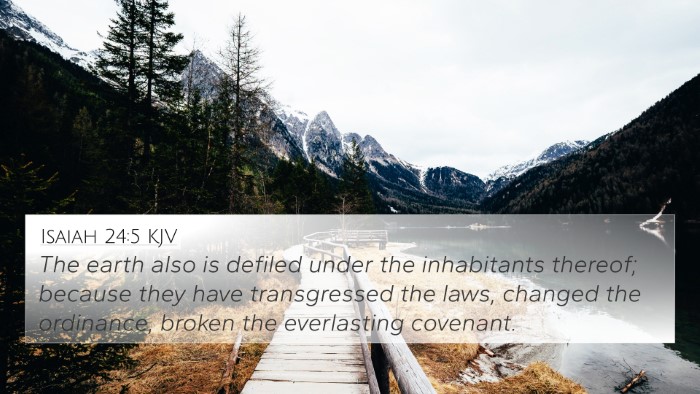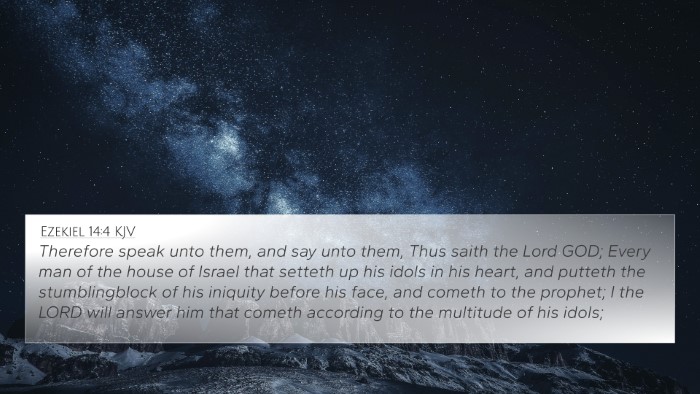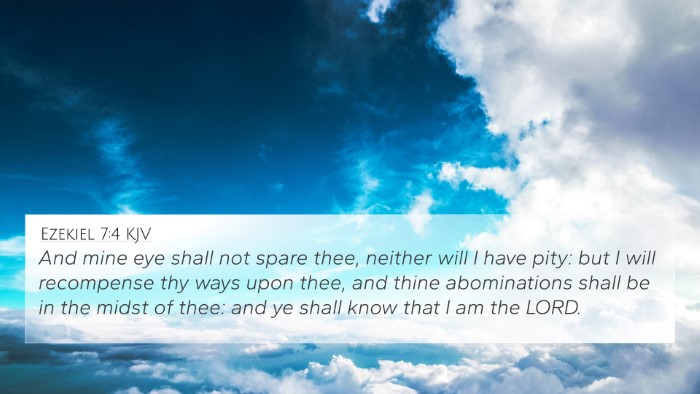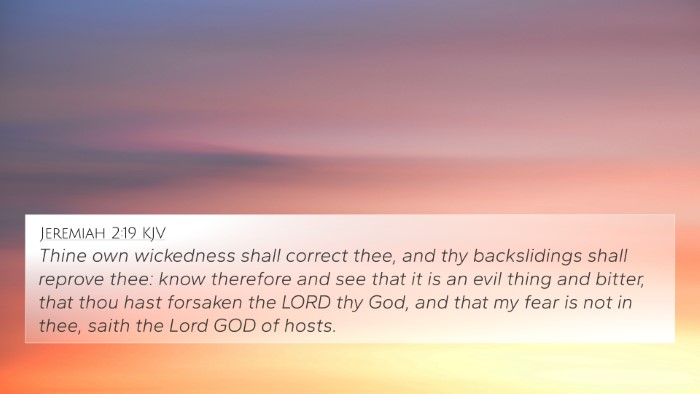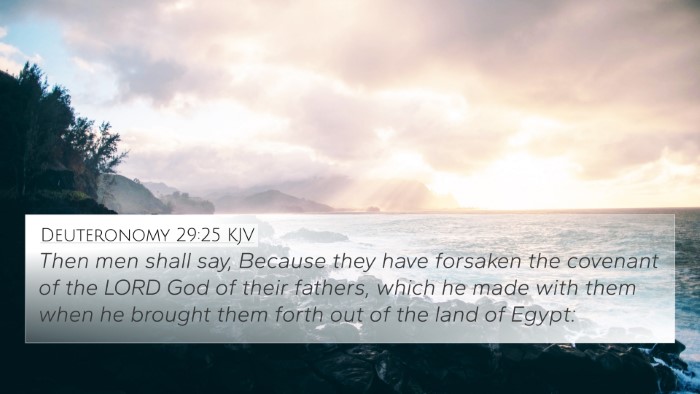Ezekiel 16:59 - Meaning and Interpretation
Ezekiel 16:59 states: "For thus saith the Lord God; I will even deal with thee as thou hast done, which hast despised the oath in breaking the covenant." This verse encapsulates a message of accountability and divine justice, reflecting God's response to the actions of His people.
The context of this scripture involves an allegorical representation of Jerusalem as an unfaithful wife, illustrating the deeper spiritual and covenantal issues at play. The use of covenant language underlines the seriousness of the relationship between God and Israel.
Summary of Insights from Public Domain Commentaries
-
Matthew Henry:
Henry explains that this passage is centered on God's fidelity contrasted with Israel's disloyalty. He emphasizes that the unfaithfulness of Zion is met with a divine promise of judgment, which serves both as a warning and an invitation to repentance. Henry argues that just as God honors His covenant, so too will He uphold justice for violations thereof.
-
Albert Barnes:
Barnes interprets this verse as a demonstration of the divine principle that God will treat people according to their actions. He notes that the consequences of their covenantal breaches demand retribution and that this retribution will serve as a means of chastening. Barnes highlights the importance of recognizing God's righteousness in executing judgment.
-
Adam Clarke:
Clarke elaborates on the symbolism of the covenant relationship, equating Israel's betrayal to the breaking of a sacred promise. He warns that breaking such bonds incurs serious ramifications, illustrating God's relentless pursuit of justice while simultaneously offering the hope of redemption.
Thematic Connections
The themes within Ezekiel 16:59 resonate throughout the biblical narrative, linking various scriptures that discuss covenant loyalty, divine justice, and faithfulness. These thematic connections provide a broader understanding of God's expectations and the seriousness of covenant relationships.
Related Bible Cross References
- Jeremiah 34:18: Discusses the consequences of breaking the covenant, echoing similar themes of divine justice.
- Ezekiel 17:16: Similar sentiments regarding the unfaithful nature of Israel and the resultant judgment from God.
- Ezekiel 18:30: An emphasis on repentance, presenting God's willingness to forgive those who turn back to Him.
- Hosea 6:7: A parallel passage that details Israel's unfaithfulness and the corresponding divine reactions.
- Deuteronomy 29:25: Discusses the repercussions of abandoning the covenant, reflecting the seriousness of maintaining faithfulness.
- Romans 2:6: Highlights God's justice in rewarding or punishing individuals based on their actions, a New Testament echo of Ezekiel's themes.
- Hebrews 10:28-29: Addresses the severity of despising the grace of the Lord and the covenant, providing insight into how these issues transcend the Old Testament context.
Understanding Through Cross-Referencing
Utilizing cross-references enriches our understanding of Ezekiel 16:59 by showing how this verse operates within a larger biblical framework. The connections made through similar themes, such as unfaithfulness, the consequences of sin, and calls for repentance, provide a comprehensive view of how God interacts with humanity throughout scripture.
Tools for Bible cross-referencing become essential in studying not just Ezekiel 16:59 but also how it connects with neighboring biblical texts and broader themes within both the Old and New Testaments. A systematic approach to cross-referencing can deepen one’s understanding and enhance the study experience.
Conclusion
In summary, Ezekiel 16:59 serves as a poignant reminder of the serious nature of covenant relationships. By examining this verse through the insights of respected biblical commentators and the connections it has with other scriptures, believers can cultivate a deeper appreciation for God's righteous standards and the call to remain faithful in their walk with Him. This understanding encourages meticulous study of biblical texts, fostering a deeper connection and comprehension of God's overarching narrative of grace, justice, and love.




